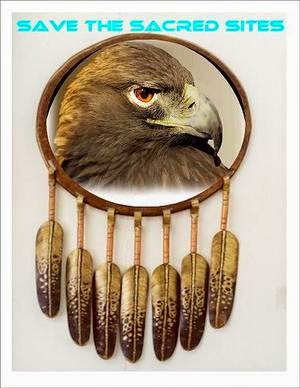Native Americans, 'U' professors discuss changes to repatriation law
April 10th, 2010
http://www.michigandaily.com/content/group-discusses-changes-repatriation-law
About 40 people met in East Hall Friday to participate in a roundtable discussion of the new regulations of the Native American Grave Protection and Repatriation Act and the effects it will have on the repatriation process of culturally unidentifiable remains currently in the University's possession.
NAGPRA — a federal law that has been in place since 1990 — requires museums to maintain lists of Native American artifacts in their possession, make those inventories available to the public and work with tribes to repatriate the artifacts.
Last month, a NAGPRA committee approved changes to the act that require museums — including the University's Museum of Anthropology, which currently holds about 1,400 culturally unidentifiable remains — to consult with tribes from the areas where the culturally unidentifiable remains were exhumed and ultimately to return the remains.
The roundtable was hosted by the Ethnography-As-Activism Workgroup, a group comprised mostly of University graduate students that is part of the Rackham Interdisciplinary Workgroup program and is committed to using ethnography to promote activism.
The discussion, which coincided with the annual Dance For Mother Earth Powwow that was held over the weekend at Saline Middle School, aimed to focus on how the University will implement the new NAGPRA regulations, which go into effect next month.
Representatives from several tribes from across the state received a rousing applause from the group as they spoke passionately about the importance of having the remains currently in the University's possession repatriated.
"It's easy. Right is right. Wrong is wrong. Immoral is immoral," one of the representatives said. "The law is on the side of (our) grandparents who lie in cardboard boxes. That's where the spirit of that law is. Nobody else. This is why the Indian people of this state are alienated from this University — because of that single issue that the University is unwilling to discuss it with any of us."
In addition the representatives, Toni Antonucci, chair of the University's Advisory Committee on Culturally Unidentifiable Human Remains under NAGPRA, Wenona Singel, associate director of the Indigenous Law and Policy Center at Michigan State University and University of Michigan Anthropology Prof. Stuart Kirsch each gave short presentations and helped facilitate a group discussion afterward.
Ethnography-as-Activism also invited members of the University's Archaeology Department to participate on the panel and give their opinions on the matter, said Regev Nathansohn, a doctoral student in the Department of Anthropology and one of the organizers of the event.
Nathansohn added that several professors and students from the Archaeology Department also attended.
Antonucci said she and her committee are working hard to find a solution that will benefit all the parties involved. She added that the new NAGPRA regulations give the University "the opportunity to move forward."
"We hope to proceed in a timely manner and be able to really heal some of the wounds that I know people feel and be respectful to both the people who feel ownership of some of these materials and remains and also to our colleagues at the University," Antonucci said. "It's a balance we hope to make."
Finding that balance may be difficult, though, because archaeologists, Native Americans and the University all view the culturally unidentifiable remains in a different light, Kirsch said to the group.
"As scientists, archaeologists may view human remains in terms of the questions they can answer," Kirsch said. "The University of Michigan, as an institution chartered by law, may view those same remains in terms of property rights concerning their disposition and most notably in terms of the provisions of NAGPRA. And Native Americans may view the same human remains as ancestors and family members."
He continued, "Scientists value open and free access to information above most other values. Institutions are bound by law, and for Native Americans, kinship responsibilities are paramount."
Nathansohn said the event was purposefully scheduled to coincide with the annual Dance For Mother Earth Powwow that was held over the weekend at Saline Middle School.
"We wanted to have more participants because people are anyhow going to be around the University," he said. "People were coming to participate in the powwow, and as you can see, many of them didn't come only for this event."
Subscribe to:
Post Comments (Atom)






No comments:
Post a Comment
Note: Only a member of this blog may post a comment.